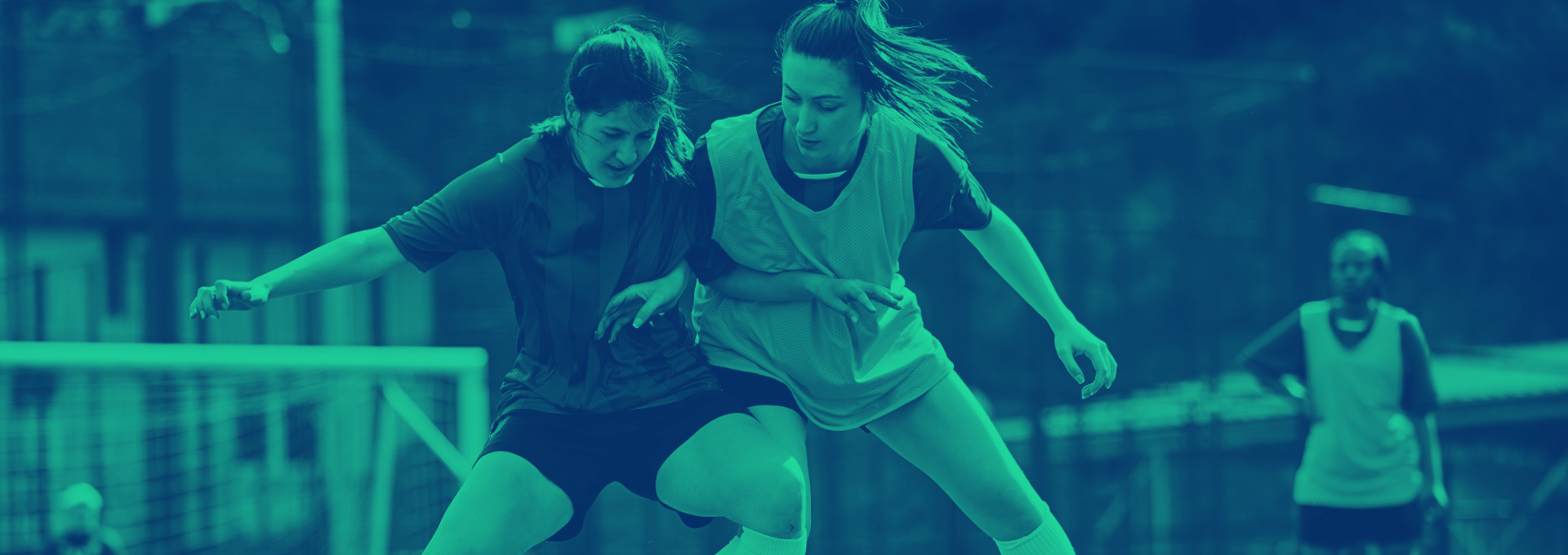
The BBC Survey ‘Elite British Sportswomen’s Study 2024’ and WEC Report ‘Health Barriers for Girls and Women in Sport’ highlight a range of issues specific to women in the modern day sports industry. The issues uncovered by these reports have potentially significant impacts for all sports governing bodies, sports organisations and clubs, along with their insurers and risk carriers. These stakeholders will want to be at the forefront of empowering gender equality in sports and will, at the same time, need to be proactive in avoiding legal exposure as attitudes, expectations and standards in the sports industry continue to change.
Key risk factors to consider include:
- Ensuring coaching and training / conditioning schedules appropriately consider and are tailored towards the needs of women, including selection of appropriately trained coaches.
- Putting in place appropriate policies and systems supporting women’s health issues such as menstruation, menopause and maternity leave including returning to work.
- Developing and implementing robust safeguarding, harassment and abuse policies, with effective systems for complaint reporting and supporting victims.
- Implementing appropriate processes for identifying and dealing with reported allegations of discrimination.
- Putting in place due diligence processes when selecting equipment for use by sportswomen.
- Ensuring appropriate risk assessments and risk management measures (including maintenance regimes) are in place for sports equipment and facilities used by sportswomen.
The sports team at HF combines decades of expertise in managing claims and incidents, with a proven track record of advising clients and their insurers and risk carriers in the sports sector on risk management, to ensure they remain compliant as well as commercially and ethically sound. Click here for more information. For support or advice on any sports related issues, including those above, please get in touch with Imogen Webb, Associate Partner and Head of Sports.
Read on for more background on the recent BBC Study and WEC Report:
The BBC has recently published the results of its ‘Elite British Sportswomen’s Study 2024’ (“the BBC Study”) which was completed by sportswomen across a full range of professional sports, including athletics, football, rugby, cricket, cycling, netball, hockey and gymnastics.
This comes shortly after the Women and Equalities Committee published a report of its inquiries into ‘Health Barriers for Girls and Women in Sport’ earlier this month (“the WEC Report”).
The BBC Study and the WEC Report shine a light on the challenges facing grassroots and professional sportswomen and raise interesting questions about the protections and support systems available.
Pay
Around 80% of the BBC Study respondents earned £30,000 or less (before tax) per year from professional sports, which is lower than the ONS figure for average earnings in the UK in 2023. In fact, over 60% of respondents earned less than £20,000 per year, which indicates that many are earning less than the National Living Wage.
Although supplementing income by working additional jobs is an option, this presents an obvious challenge given the demands of training and recovery routines at the elite levels of sport, and ultimately presents a trade-off with performance.
It was felt by over 75% of BBC Study respondents that compared to sportsmen, they were not paid enough. Anonymised responses also reported that it was more difficult for women to find sponsorship than men, even at world-class level. These conclusions are in line with the general position in the UK, where the gender pay gap was just under 8% in 2023.
Equipment and Facilities
Just under 1 in 4 of the BBC Study respondents thought the quality of facilities and equipment they used could cause them an injury, and around 70% of respondents reported that the equipment they use is not specifically designed for women.
The WEC Report identified systemic gender inequality in sports and exercise research, as the majority of this is carried out by men and is focussed on men’s physiology and health issues.
The disproportionate rates of ACL injuries being suffered by professional women’s footballers in recent years (for example five of the top twenty players nominated for the Ballon D’Or in 2022 had suffered the injury) is a striking demonstration of the impact this inequality has on sportswomen. Research suggests that a variety of factors can cause ACL injuries, including the mechanics of the knee, overloading, lack of conditioning and poor training methods. Many sports fans would also be surprised to learn that there are very few football boots actually designed around women’s bodies, and this may also have an impact on injury risk.
Lots of these issues are borne out of the lack of underlying research regarding women’s physiology and women’s health issues. The effects of this are compounded by more overt issues such as women’s teams playing on secondary pitches that are of a lower standard.
Coaching
Around 1 in 3 of the BBC Study respondents believed that they did not receive enough coaching support as compared to men.
Additionally, the WEC Report highlights that there is insufficient understanding from coaches across different sports in respect of women’s health issues, such as managing training around period cycles and ensuring adequate energy intake to avoid the risk of serious health conditions, such as Relative Energy Deficiency in Sport (“RED-S”). Generally speaking, women’s health issues are not covered in coaching qualifications, and understanding within the coaching industry varies between individuals and clubs.
Maternity and Menstruation
Roughly 40% of BBC Study respondents did not feel supported by their club or governing body to have a baby and then return to competing, and around 1 in 3 respondents had delayed having a family due to their career. The WEC Report summarised that although progress is being made by individual sports in respect of creating maternity policies, many clubs and governing bodies lagged behind and cultural issues persist.
Over 60% of BBC Study respondents reported their performance being affected by menstruation and having missed training and competitions due to periods. Around 1 in 4 respondents had also noticed a link between their period and injuries. Beyond this, the WEC Report highlights the impact of periods on participation, with this being one of the key reasons why many adolescent girls give up playing sport.
Media
As many women’s sports fans would agree, the BBC Study indicated almost total agreement that media coverage of women’s sports has improved over the last 5 years. That being said, more needs to be done to achieve equality as around 90% of respondents considered that media reporting was not equal between men’s and women’s sport. Media coverage of course has an important impact on sponsorship opportunities, which ties into the pay issues noted above.
Abuse, Discrimination and Sexism
Around 7 in 10 of the BBC Study respondents had experienced sexism in their sport, and 4 in 10 had experienced different forms of discrimination. Discrimination was only reported in around 6% of cases, and action taken in just over 10% of the reported cases. Around 1 in 3 respondents ultimately felt they were not supported equally by their governing body as compared to male colleagues.
Anonymised examples in the BBC Survey described shocking instances including a host announcing a performance award as being for ‘best bum’. High profile examples of harassment and sexism include the non-consensual kiss incident involving Luis Rubiales (former head of the Spanish football federation) and midfielder Jennifer Hermoso at the Women’s World Cup last summer.
1 in 5 of the BBC Study respondents had experienced abusive coaching methods, and again reporting levels were low (15%). Where abuse was reported, only 1 in 3 were satisfied with the outcome. The WEC Report identified examples of abusive coaching methods, such as weighing and body shaming, in swimming and other sports. These practices were found to have effects on participation, as well as causing serious physical and mental health issues in serious cases.
Comments
The BBC Survey and WEC Report highlight a range of issues facing sportswomen in the modern-day sports industry. Many of these issues are historical, as lots of sports were professionalised decades ago, during a more patriarchal time when women’s participation was not contemplated. In the twenty-first century, women’s participation in sport is more widespread and media coverage and support is growing faster than ever, but this remains a game of ‘catch-up’. As we move forward, the development of women’s sport requires a combined focus on equality, for example in relation to pay, and differentiation with men’s sport, for example carrying out dedicated sports research based on women’s physiology.
As highlighted above, it is imperative that sports governing bodies, sports organisations, clubs and their insurers and risk carriers remain ahead of the curve as standards develop and change, in order to avoid legal exposure. Click here for more information, and for support or advice on any sports related issues, including those above, please get in touch with Imogen Webb, Associate Partner and Head of Sports.
You may also like

Let the Games Begin…but what about the risks?
The latest event in 2024’s summer of sports is huge - the Paris 2024 Olympic and Paralympic Games (referred to...

Recklessness in Sport
Is Recklessness a requirement in sports injury cases? Insurers, sport governing bodies, teams and venues are – rightly – increasingly...

2024’s Summer of Sport: it’s not all fun and games…
Sports fans are gearing up for a busy summer. Alongside annual competitions including Wimbledon and the Tour de France, Euro...





